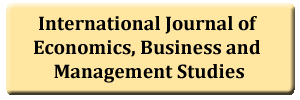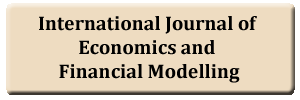America’s Global Hegemony since the Collapse of the Soviet Union: Implications for Africa’s Development
DOI:
https://doi.org/10.20448/807.3.2.113.121Keywords:
American hegemony, USSR, Africa’s development, Cold war, Global peace.Abstract
This paper examines America’s global hegemony since the collapse of the Soviet Union and its implications for Africa’s development. It contends that the disintegration of the Soviet Union which ended the Cold War saw the emergence of the United States of America as a global hegemonic power. The changes in global power equation was accompanied by the rise of neo-liberal ideologies as the standard for the conduct of global governance. Also, Africa’s relevance in Western strategic calculation which gained currency during the Cold War diminished. These dramatic changes deepened Africa’s socio-economic malaise and provided the incentives for most of the internal armed conflicts that were fought since the beginning of the 1990s. In spite of these crises, Africa continued to survive as a continent; and developed indigenous capabilities especially in conflict intervention and management as exemplified by the successes of ECOMOG in West Africa.





